Come, Follow Me Daily Study Guide for the week of March 23-29, 2020 covering Enos – Words of Mormon. For personal and/or family study of the scriptures, geared towards families with teenagers, single adults, and empty nesters.
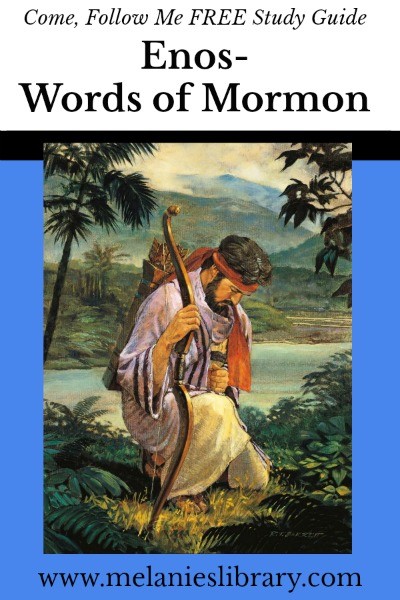
*This is a suggested outline that coincides with the Come, Follow Me manual. There is not just one right way when it comes to studying the scriptures. Everyone should study in a way that is best for them, but I do hope that you find these outlines helpful.
**I highly suggest getting a scripture journal. Throughout the year there will be several times that I will suggest jotting something down in your scripture journal. These are also great for writing down any impressions or “Aha” moments that you might have as you study the scriptures.
***A free PDF DOWNLOAD of the Study Guide is available at the bottom of this post. Making it easy for those who’d like to print out a copy.
****SONGS – For a list of suggested songs for each day of the week, be sure and check out the new blog called Music for Latter-day Life by clicking HERE

FHE DAY
Start the week off right with a Family Home Evening that introduces what you’ll be studying during the week. Sign up for the Teach Me FHE email group and receive an FHE outline delivered right to your inbox every Sunday morning. Sign up at the bottom of this post.

THE LORD WILL BLESS ME WHEN I KEEP THE COMMANDMENTS
BACKGROUND/SCRIPTURE
Can you fill in the blank?
“Inasmuch as ye will keep my commandments ye shall _____________ in the land.”
This is one of God’s most repeated promises to the Nephites in the Book of Mormon.
READ: Jarom 1:9–12 and Omni 1:6
What does it mean to prosper in the land?
WATCH VIDEO: What Does it Mean to Prosper in the Land? (1:25), click HERE
MINI LESSON
QUOTE: Elder Uchtdorf once said, “I think, that we imagine that God has all of His blessings locked in a huge cloud up in heaven, refusing to give them to us unless we comply with some strict, paternalistic requirements He has set up. But the commandments aren’t like that at all. In reality, Heavenly Father is constantly raining blessings upon us. It is our fear, doubt, and sin that, like an umbrella, block these blessings from reaching us.”
CARTOON: Show this cartoon The Guardrail, by clicking HERE
How can viewing commandments as strict requirements from the Lord cause us to miss out on blessings?
What is the difference between following a commandment willingly compared to unwillingly?
If our heart is not fully committed to keeping a commandment, is it easy to break it? Why?
If there’s a commandment that you’re not fully committed to keep, what can you do to gain a testimony of that commandment?
The following story is told by Elder Uchtdorf about women who were fully committed to keeping the commandment of loving thy neighbor.
WATCH VIDEO: Living the Gospel Joyful (3:28), by clicking HERE
PONDER & DISCUSS
What does “prosper in the land” mean to you?
If we look at serving others as an item on our to-do list, what will we miss out on?
ADDITIONAL RESOURCES (optional)
VIDEO: Keep the Commandments (14:24)
VIDEO: No Other Gods(16:43)
VIDEO: Living the Gospel Joyful(20:08)
QUOTE: It Isn’t the Lord

HAVING THE WORD OF GOD IN OUR LIVES IS VITAL TO OUR SPIRITUAL WELL-BEING
BACKGROUND/SCRIPTURE
TRUE OR FALSE POP QUIZ (with a treat)
Have everyone write TRUE OR FALSE to the following statements in their scripture journals or on a piece of paper. DO NOT give any of the answers until the pop quiz is over and even then, only give the answers one at a time after pausing between each one to take time to discuss and explain why each statement is true or false. Each time you say what the answer is to a statement, give each person who got the answer correct 2 small candies and give only 1 small candy to those who got the answer wrong.
- The book of Omni in the Book of Mormon was named after a wicked man.
- The great Book of Mormon city, Zarahemla, was founded and settled by King Benjamin and the Nephites.
- Mosiah was the last known survivor of the Jaradites.
- When the people of Zarahemla were discovered, they were not a righteous people.
ANSWERS
1.TRUE. Read Omni 1: 1-2
INSIGHT: [Omni] refers to himself as “a wicked man” because he had not kept the statutes and commandments of the Lord. It need not be supposed from such an admission that he was guilty of any gross immorality, but rather that he was not zealous in honoring the law of Moses and in keeping other religious obligations. Not having lived according to the Spirit, he was not prepared to teach or write after the manner of the Spirit, and therefore found it necessary to pass the plates to his son Amaron without making any spiritual addition to them. (Doctrinal Commentary on the Book of Mormon by McConkie and Millet, pg 112-113)
2.FALSE. Read Omni 1: 12-16 (The people of Zarahemla were descendants of a group of Israelites who, like Lehi’s family, had left Jerusalem and were led by God to the promised land. Mosiah and his people, who had fled the land of Nephi, discovered the people living in Zarahemla and joined them.)
3. FALSE. Read Omni 1: 19-22 (Last known survivor was Coriantumr whose story is told in the book of Ether)
4. TRUE. Read Omni 1: 17
MINI LESSON/PONDER & DISCUSS
COMPARE: Compare the People of Mosiah in verse 13 and the People of Zarahemla in verse 17.
What do these verses teach us about the importance of having the word of God in our lives?
Is there a difference between having the word of God in our lives compared to making them a part of our lives?
Is making time for scripture reading a sacrifice?
When faced with a decision, is choosing the harder right over the easier wrong sometimes feel like a sacrifice?
DRAW: Ask family members to draw in their scripture journals or on a piece of paper what they think an altar looks like.
Show the following picture of Lehi by an altar.

Lehi and an altar of sacrifice, used for educational purposes.
EXPLAIN: Anciently when people offered sacrifices, often it involved placing an animal on top of the altar and sacrificing the whole animal.
READ: Omni 1:26 and see what it is that Amaleki says we must give. (Our whole souls)
QUOTE: (The following is from David Butler in Don’t Miss This)
The legendary football coach Vince Lombardi once said: “I firmly believe that any man’s finest hour, the greatest fulfillment of all that he holds dear, is that moment when he has worked his heart out in a good cause and lies exhausted on the field of battle – victorious.”
This was the pattern set by Jesus, who came into the world and, because of His love for the Father, gave all. He worked his heart out in a good cause – the best cause – and came away victorious. He gave His whole soul as an offering and simply hopes for the same in return. All for all.
ADDITIONAL RESOURCES (optional)
CFM MANUAL: The people of Zarahemla were descendants of a group of Israelites who, like Lehi’s family, had left Jerusalem and were led by God to the promised land. Among that group was Mulek, one of the sons of Zedekiah, the king of Judah who was captured by the Babylonians in about 587 BC. *This is one of those times where the Book of Mormon refers to someone we can read about in the Bible, connecting the two books together. You can read Jeremiah 52: 1-11 to learn more about who Mulek’s father Zedekiah was. Interesting to note that in Jeremiah 52:10 it says they slew the sons of Zedekiah, but we know that is not 100% true because his son Mulek lived. You can cross-reference this scripture with Helaman 6:10, 8:21 and Mosiah 25:2.
CONFERENCE TALK: The Blessing of Scripture

FOLLOWING THE SPIRIT EVEN WHEN YOU DON’T KNOW WHY
BACKGROUND/SCRIPTURE
What does “abridgment” mean?
The Title Page of the Book of Mormon calls its text, as prepared by Mormon and Moroni, “an abridgment of the record of the people of Nephi, and also of the Lamanites.” It also refers to its account of Jaredite history as “an abridgment taken from the Book of Ether.” The prophet Nephi similarly referred to a portion of his writings as “an abridgment of the record of my father” (1 Nephi 1:17).
An abridgment is a shortened version of a text, which means that the abridgments found in the Book of Mormon are only summaries of larger recorded histories.
The total amount of history that the Book of Mormon’s primary editors were working with must have been quite vast. You can tell by what Mormon and other prophets have said.
READ: Words of Mormon 1:5 and cross-reference this verse with one or more of the following scripture verses: Jacob 3:13; Helaman 3:14; 3 Nephi 5:8; 3 Nephi 26:6–7; and Ether 15:33
What is Words of Mormon?
Words of Mormon serves as a bridge between the two sets of plates that make up the Book of Mormon. Here Mormon gives an explanation of these two records.
As you may remember, when Nephi was writing the record of his people, God directed him to create two sets of plates, called the small plates and the large plates of Nephi. Nephi didn’t know why he was commanded to create two sets of plates, but he trusted that the Lord had “a wise purpose … , which purpose I know not” (1 Nephi 9:5).
Now, centuries later, as Mormon was abridging Nephi’s large plates, he came across the small plates. The small plates covered many of the same events described in the large plates that Mormon had already abridged, but the small plates focused more on spiritual matters and the ministry and teachings of the prophets. God inspired Mormon to include the small plates of Nephi in his record in addition to the large plates.
Like Nephi, Mormon didn’t understand God’s purpose for having both sets of plates, but he trusted God.
READ: Words of Mormon 1:7
Today we know what God’s purpose was. In 1828, after Joseph Smith had translated part of Mormon’s abridgment of Nephi’s large plates (116 manuscript pages), Martin Harris lost those pages. God commanded Joseph not to retranslate this portion because evil men would change the words and try to discredit Joseph. (CFM manual)
MINI LESSON
As a young Bishop, Thomas S. Monson was prompted to visit a friend suffering in the hospital. It wasn’t until later that he learned why it was so important that he went that night.
Watch Video: Preparation of Thomas S. Monson: Always Follow the Promptings of the Spirit (2:40), by clicking HERE
PONDER & DISCUSS
Why is it important to follow a prompting even if you don’t know why you were prompted to do it?
What is a natural response when you are prompted to do something but don’t know why? (Talk yourself out of it, come up with reasons why you shouldn’t)
What can you do the next time you are prompted to do something but find yourself talking yourself out of it?
Do you think President Monson wrote this experience down in his journal?
How important is it to write down spiritual experiences? How could it bless our lives and the lives of others?

GENERAL CONFERENCE DAY
Study a recent General Conference talk. A great way to study a conference talk is to have your own conference issue of the Ensign and a highlighter. Listen to the talk and as you listen, highlight the part(s) that stands out to you. Then after the talk, review and/or share and discuss what you have highlighted.
THIS WEEK’S TALK: The Second Great Commandment By President Russell M. Nelson, click HERE
SUMMARY: “Latter-day Saints, as with other followers of Jesus Christ, are always looking for ways to help, to lift and to love others. … They truly seek to live the first and second great commandments. When we love God with all our hearts, He turns our hearts to the well-being of others in a beautiful virtuous cycle.” Church humanitarian outreach was launched in 1984 to help drought-stricken eastern Africa, with a single fast day raising $6.4 million. Now under the “Latter-day Saint Charities” name, the Church has provided more than $2 billion in global assistance. “This assistance is offered to recipients regardless of their Church affiliation, nationality, race, sexual orientation, gender or political persuasion.” This is beyond the fast-offering assistance offered to members. In 2018, the Church provided emergency supplies to refugees, as well as vision care, newborn care and wheelchairs. Also last year, the Church carried out more than 100 disaster-relief projects. “Giving help to others — making a conscientious effort to care about others as much or more than we care about ourselves — is our joy. Especially, I might add, when it is not convenient and when it takes us out of our comfort zone. Living that second great commandment is the key to becoming a true disciple of Jesus Christ.”
*For a list of discussion questions that go along with this talk, check out these from Chicken Scratch n Sniff by Clicking HERE

CATCH UP DAYS
Do one of the days that you missed OR any of the additional resources listed.
Yours Truly,

P.S. For more Come, Follow Me resources, check out my post Your Ultimate Guide to Come, Follow Me. It lists over 100 Come, Follow Me resources that are available online starting with the church’s resources at the top. You can find it by clicking HERE.
P.P.S. Sign up here for the Teach Me FHE email group and receive FHE outlines delivered right to your inbox every Sunday morning.
Disclaimer: Melanie’s Library is a participant in the Amazon Services LLC Associates Program. An affiliate advertising program designed to provide a means for sites to earn advertising fees by advertising and linking to amazon.com.
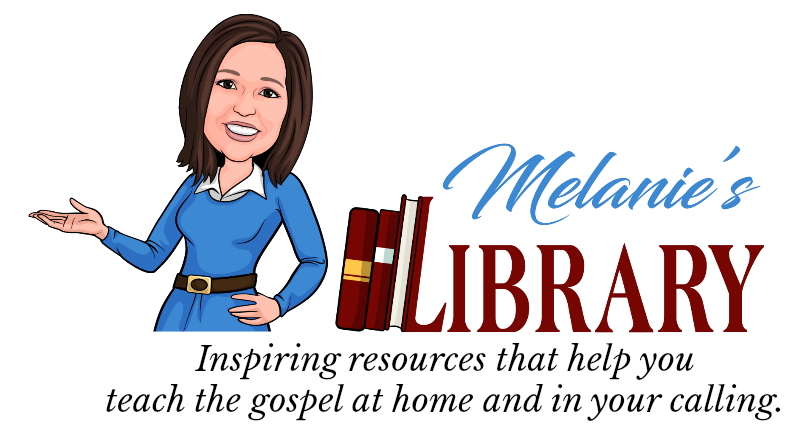
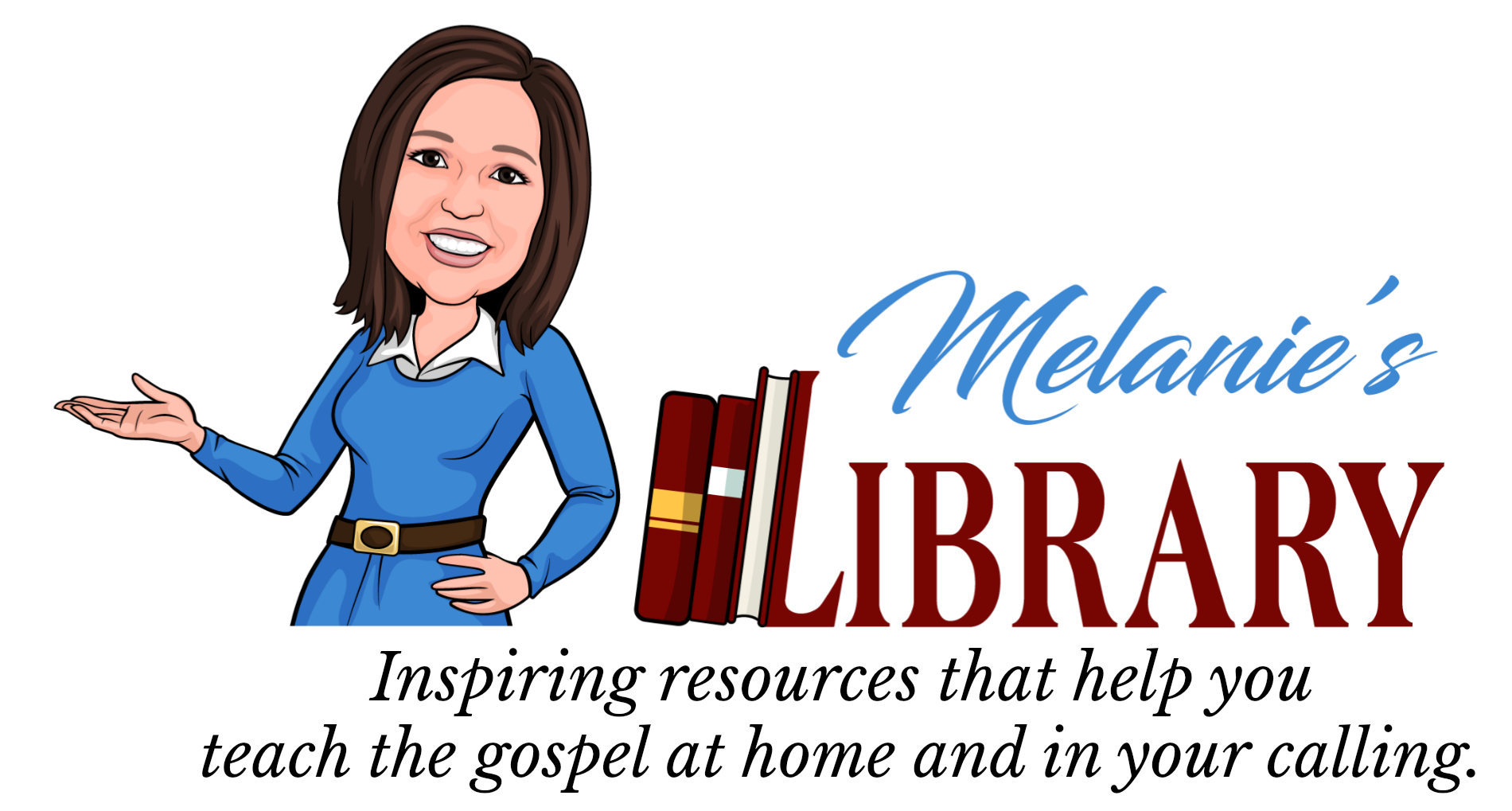
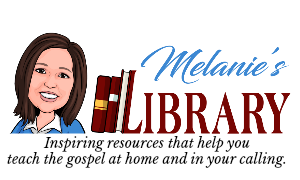

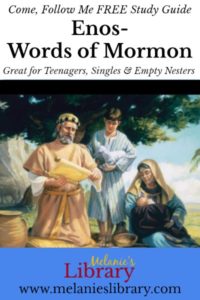


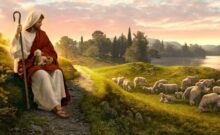
Rebecca Baron
March 22, 2020 7:47 pmHere are some videos that also go along with Monday’s lesson – https://www.churchofjesuschrist.org/media-library/video/youth-animated-videos?lang=eng and https://www.churchofjesuschrist.org/inspiration/latter-day-saints-channel/watch/series/mormon-messages/shower-of-heavenly-blessings?lang=eng
Melanie
March 23, 2020 6:57 amThank you, Rebecca. Those are perfect 🙂